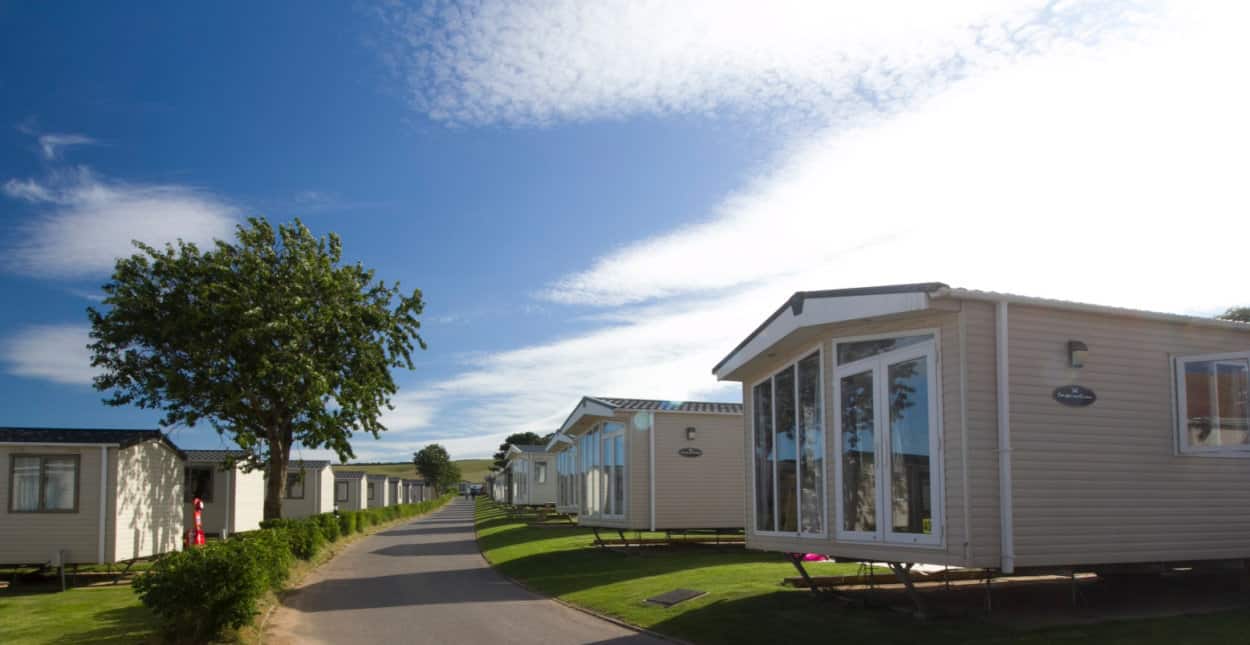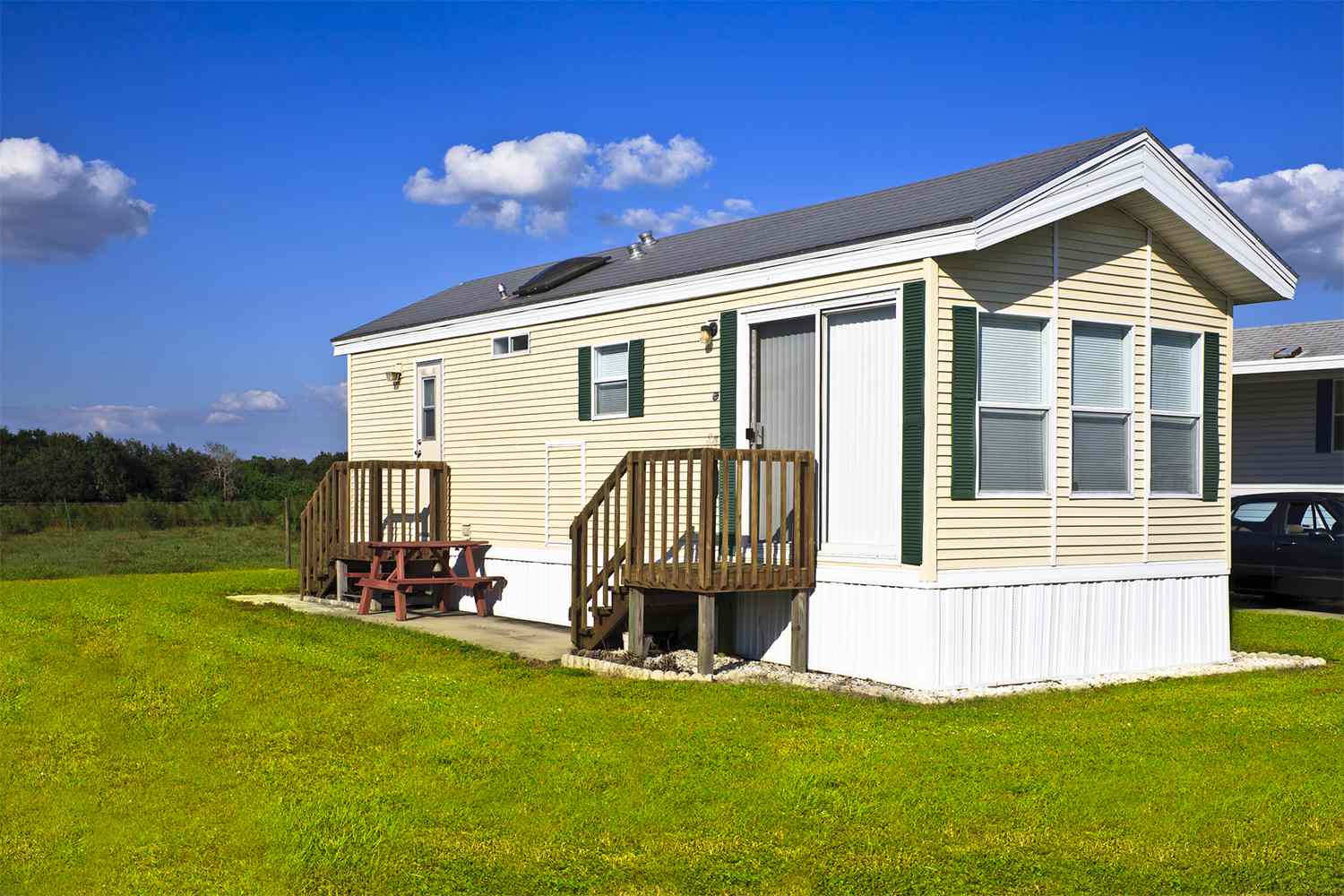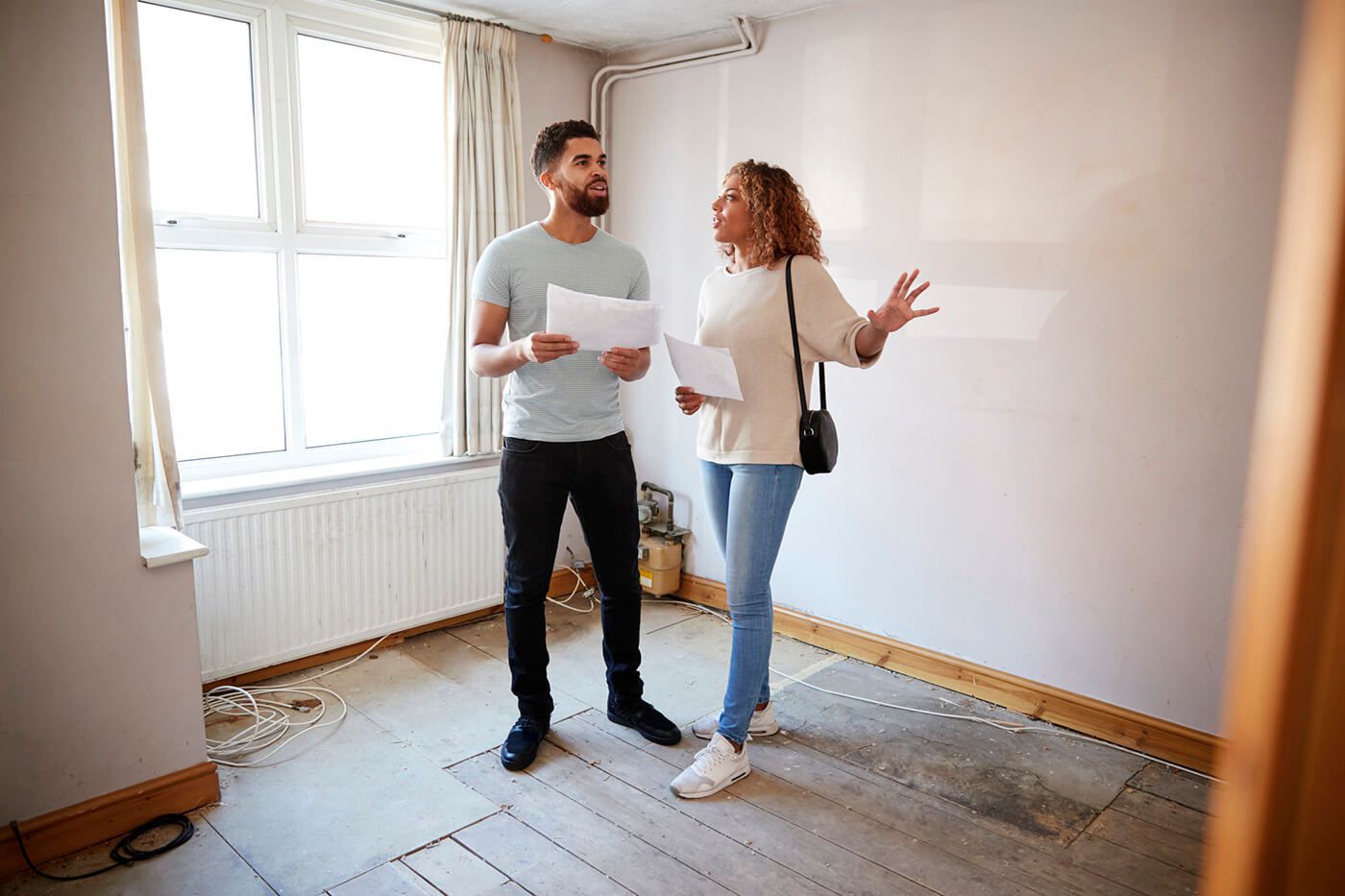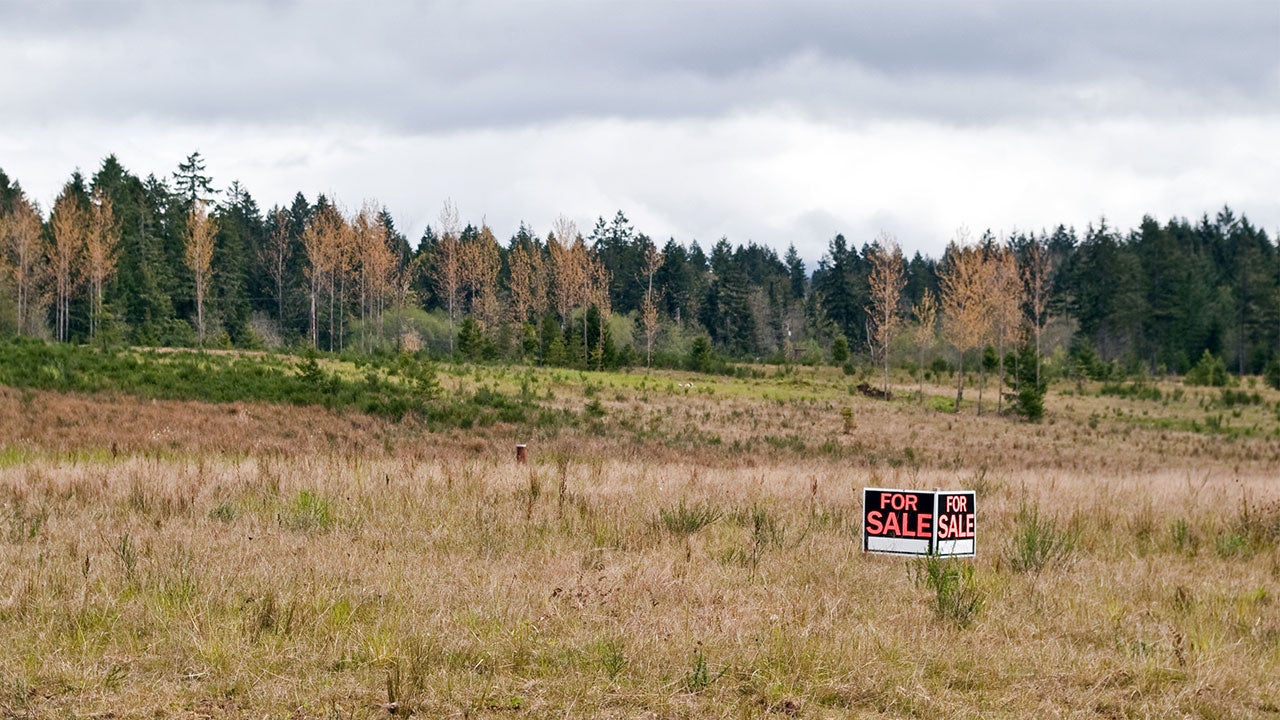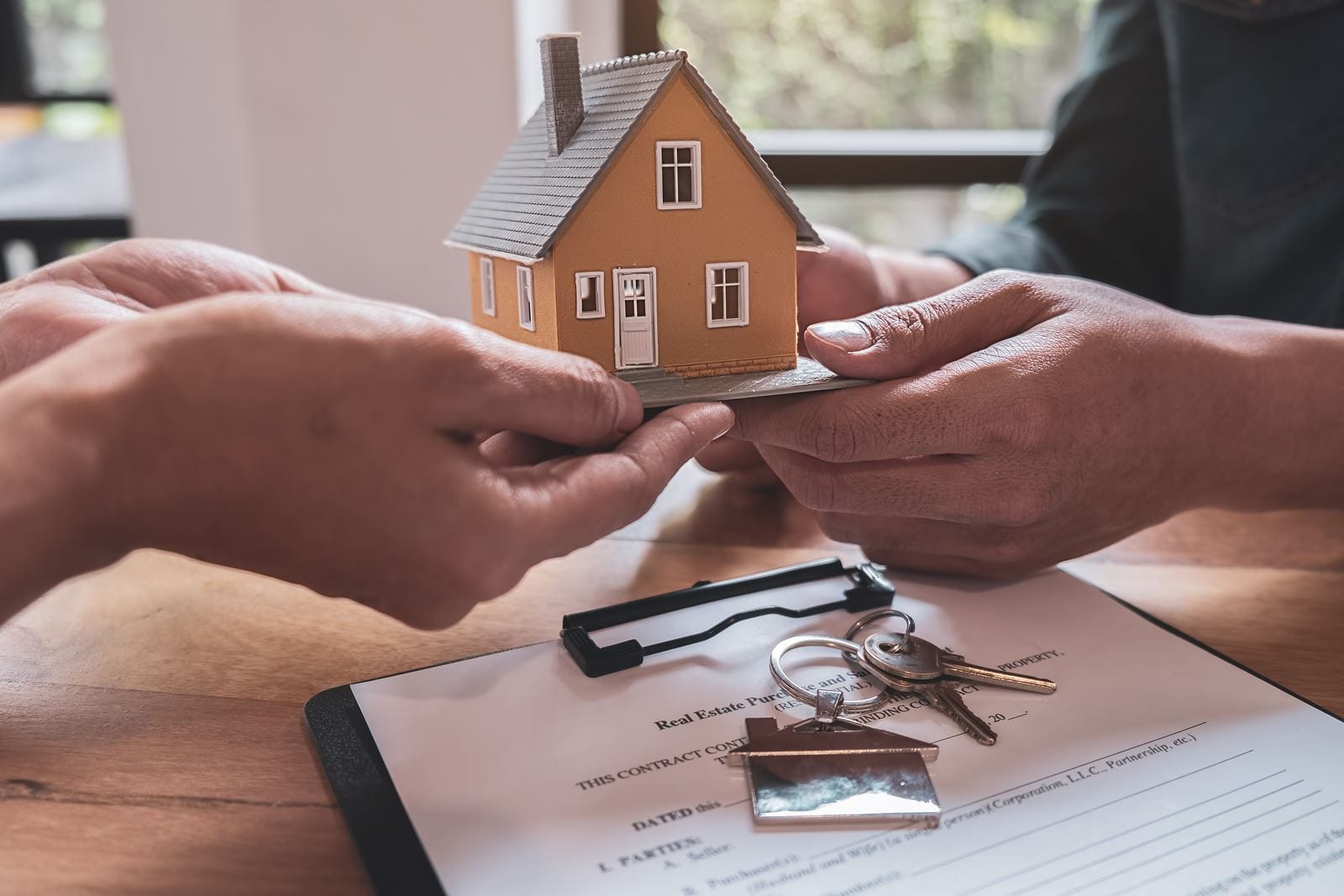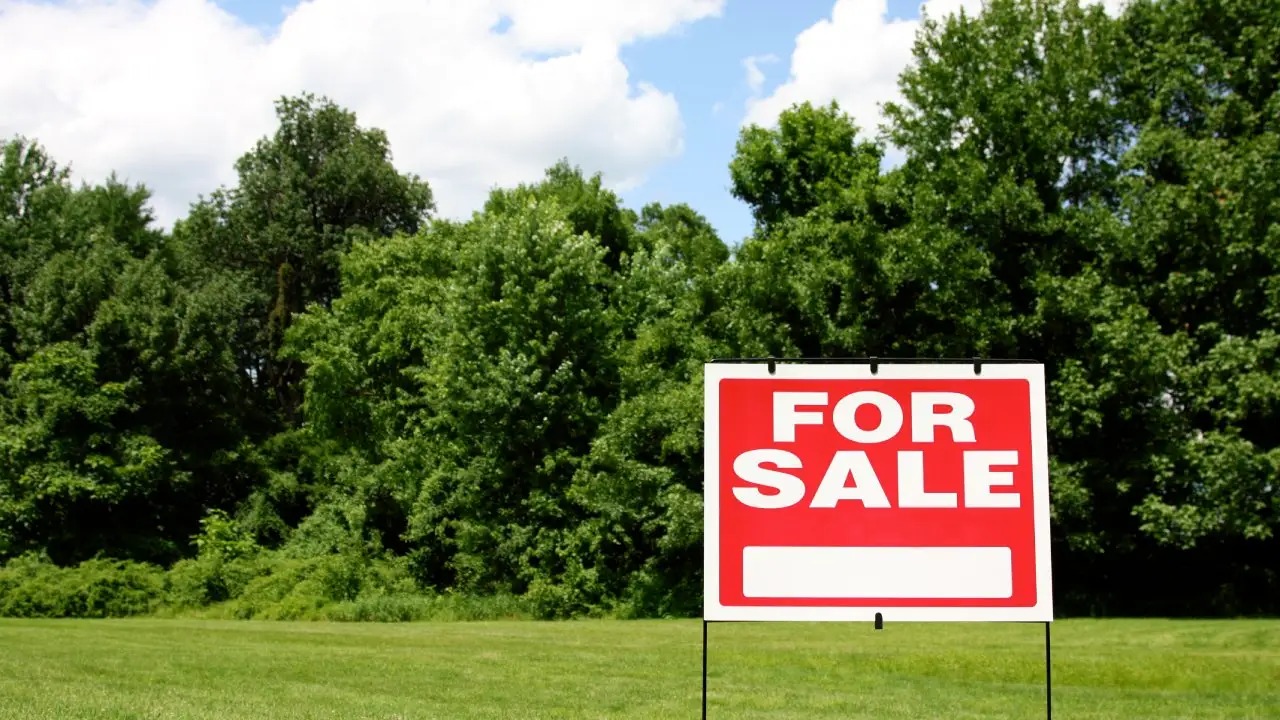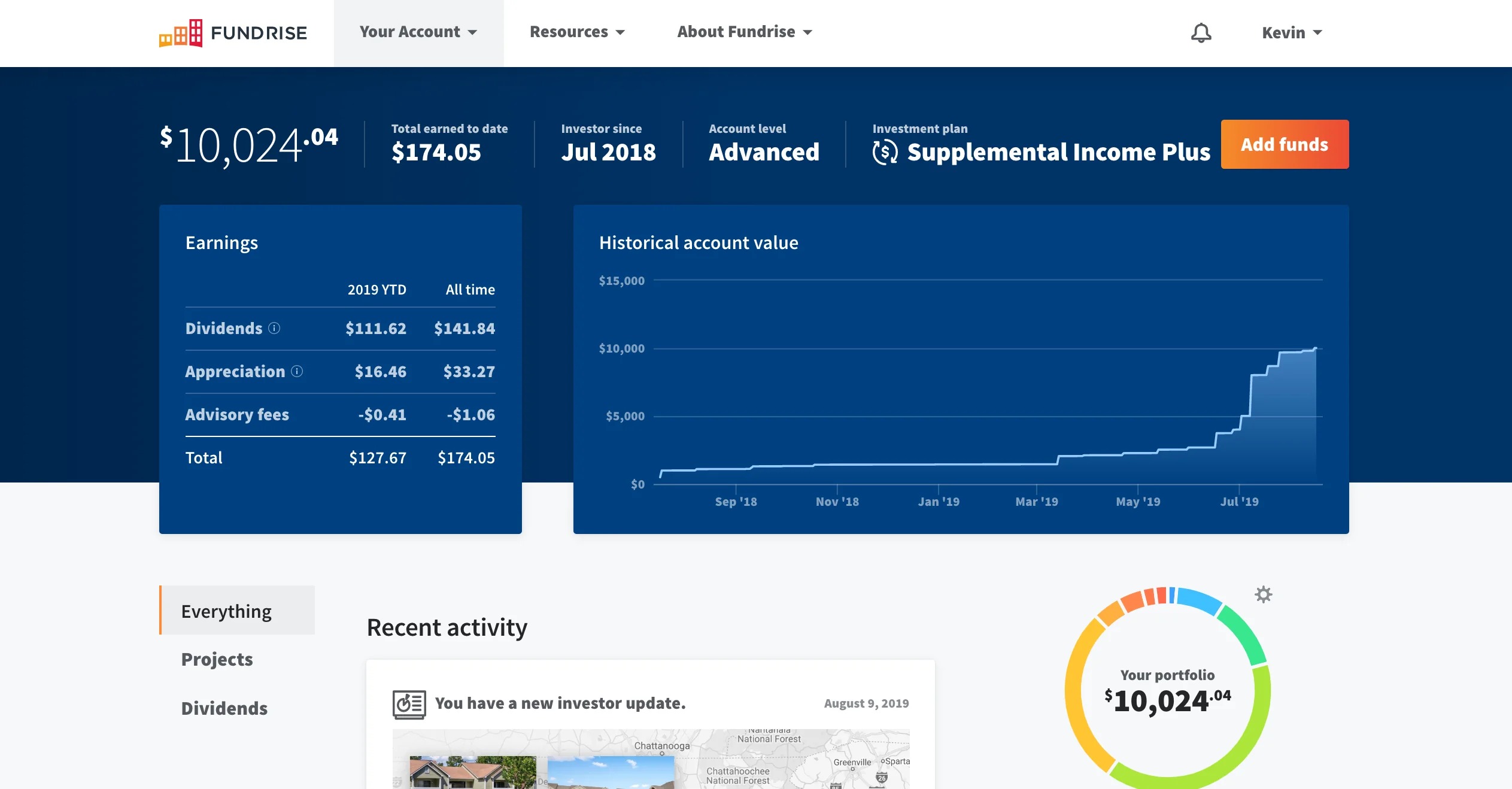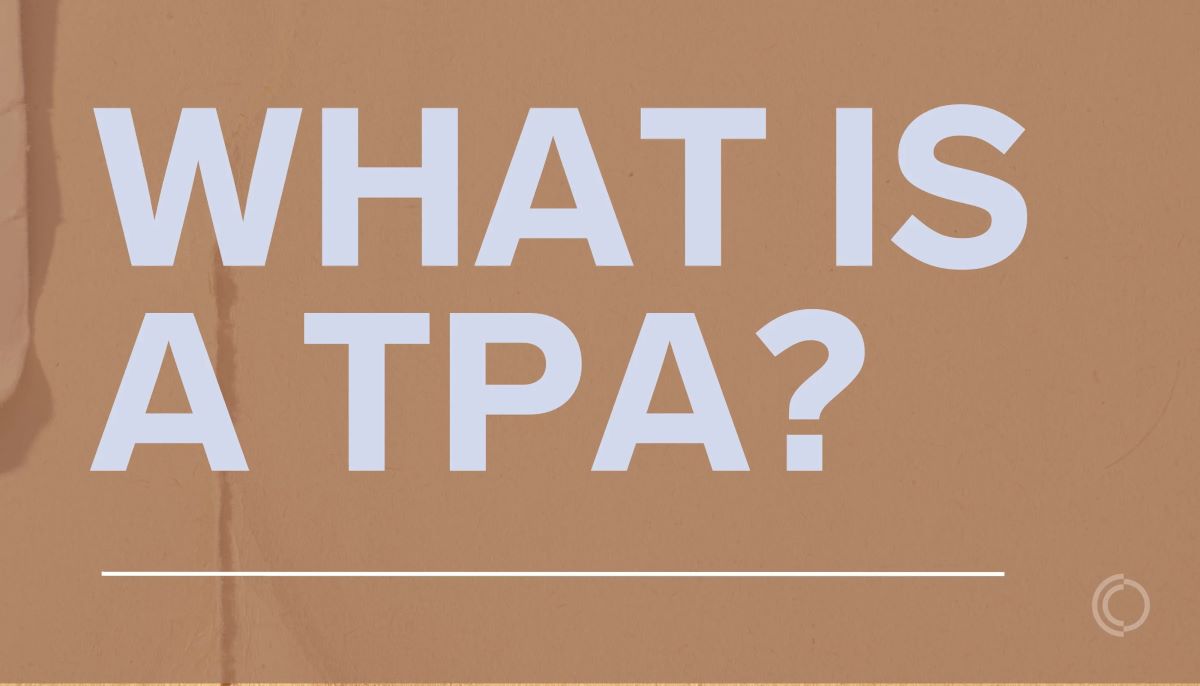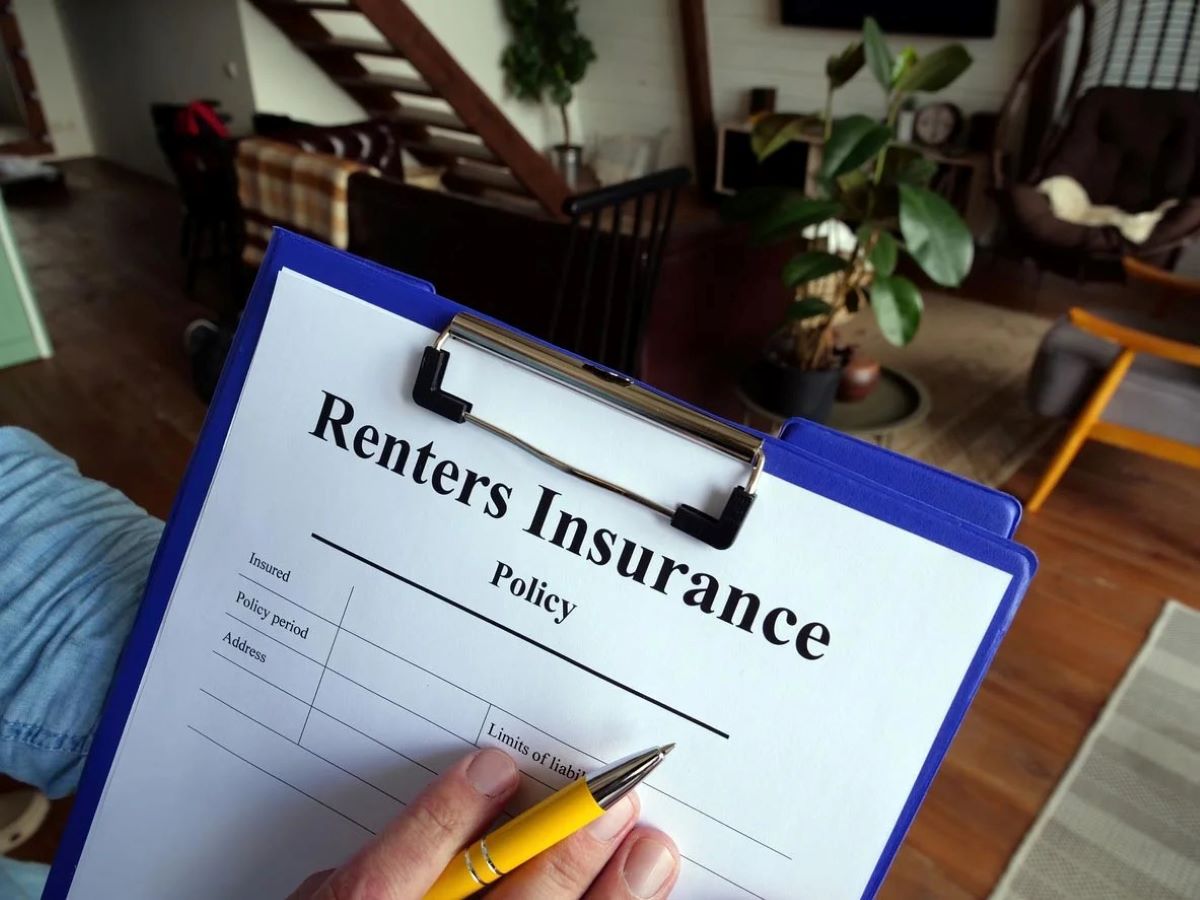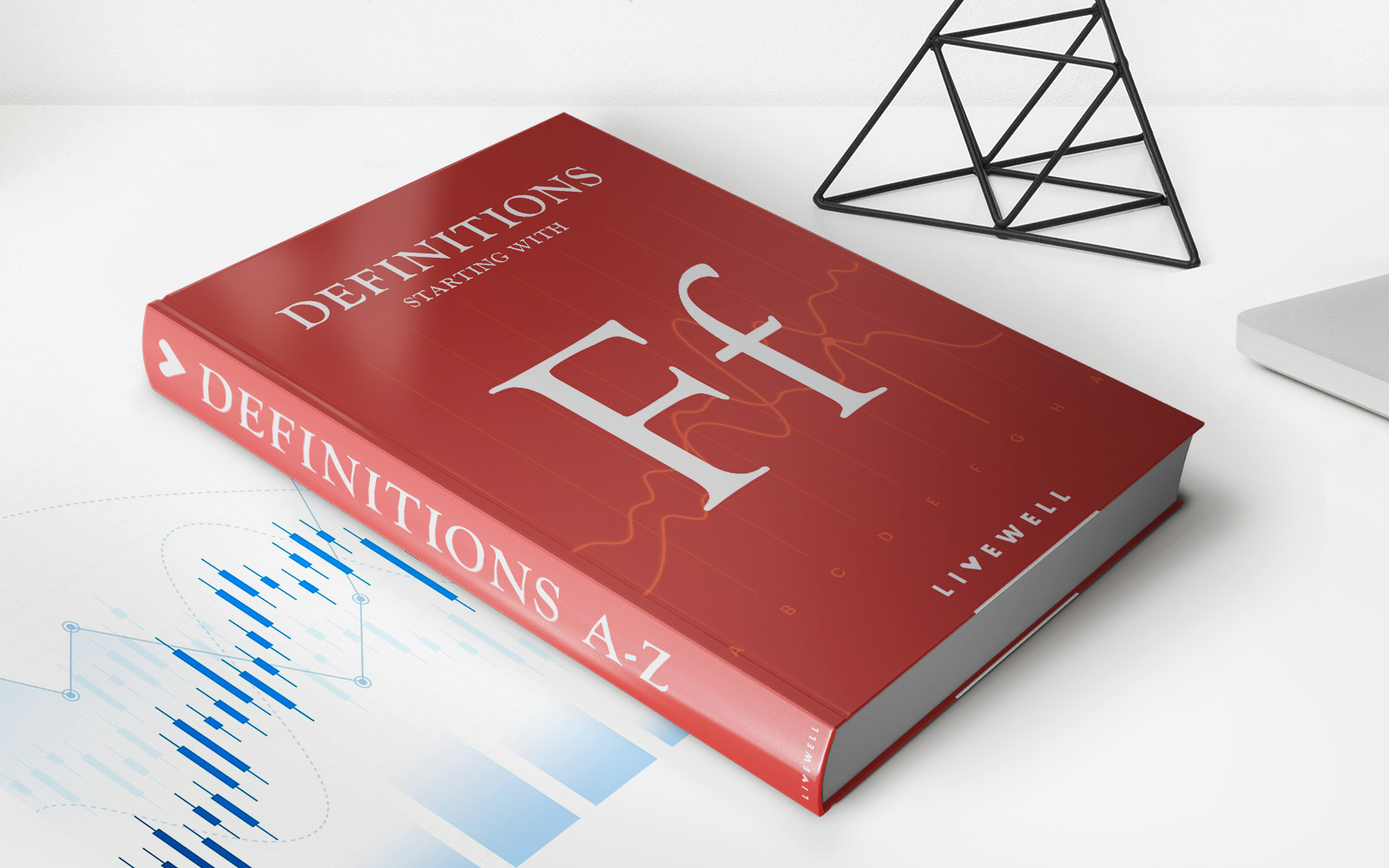Home>Finance>How To Buy A Foreclosed Home With Bad Credit And No Money Down
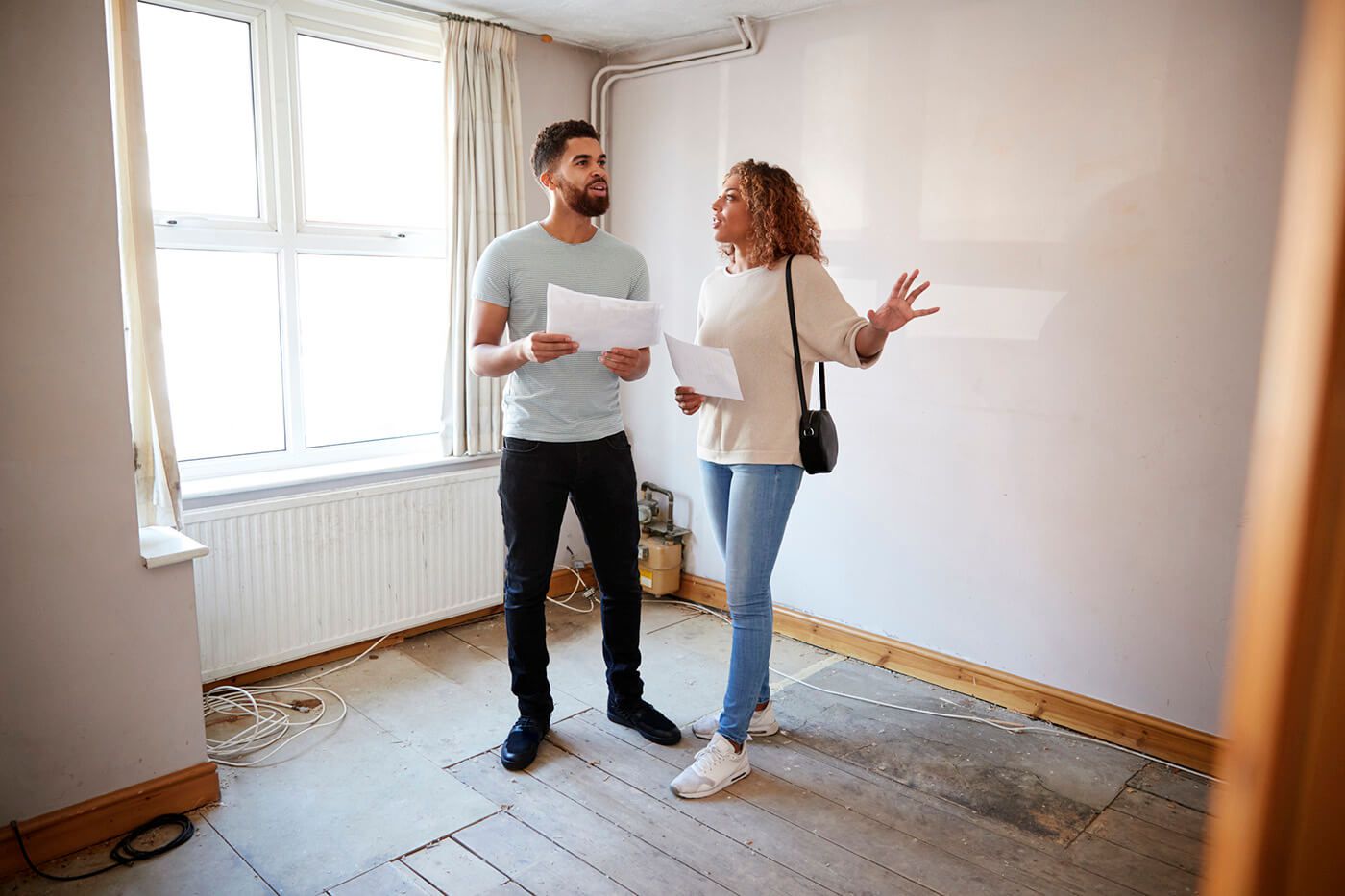

Finance
How To Buy A Foreclosed Home With Bad Credit And No Money Down
Modified: February 21, 2024
Looking to buy a foreclosed home but have bad credit and no money down? Discover effective finance strategies to make your dream a reality.
(Many of the links in this article redirect to a specific reviewed product. Your purchase of these products through affiliate links helps to generate commission for LiveWell, at no extra cost. Learn more)
Table of Contents
- Introduction
- Understanding Foreclosed Homes
- Assessing Your Credit Situation
- Improving Your Credit Score
- Exploring Financing Options
- Zero Down Payment Programs
- Government Assistance Programs
- Working with Non-traditional Lenders
- Researching Foreclosed Properties
- Home Inspection and Appraisal
- Negotiating the Purchase
- Closing the Deal
- Conclusion
Introduction
Welcome to our comprehensive guide on how to buy a foreclosed home with bad credit and no money down. Purchasing a home that has been foreclosed upon can be a great opportunity to find a property at a lower cost. However, many potential buyers with bad credit and limited funds may feel discouraged, thinking that homeownership is out of reach for them. We’re here to tell you that it is possible to buy a foreclosed home, even with a less-than-perfect credit score and without a large down payment.
Foreclosed homes are properties that have been repossessed by lenders due to the previous owner’s failure to make mortgage payments. These homes are often sold at an auction or listed on the market by banks or lending institutions. They can offer significant discounts compared to traditional home purchases, making them an attractive option for the budget-conscious buyer.
However, buying a foreclosed home requires careful planning and consideration, especially if you have bad credit and limited funds. In this guide, we will walk you through the necessary steps to improve your credit, explore financing options, and navigate the process of purchasing a foreclosed property.
It’s important to note that while buying a foreclosed home can present unique opportunities, there are also potential risks involved. These homes may require repairs or renovations, and there may be legal or financial complications to navigate. It’s crucial to do thorough research and enlist the help of professionals, such as real estate agents and home inspectors, to ensure a smooth and successful purchase.
So, if you’re ready to embark on your journey to buy a foreclosed home with bad credit and no money down, let’s dive into the steps you need to take and the options available to you. With determination and the right guidance, homeownership may be within your reach sooner than you think!
Understanding Foreclosed Homes
Before diving into the process of buying a foreclosed home with bad credit and no money down, it’s important to have a clear understanding of what exactly a foreclosed home is and how the foreclosure process works.
A foreclosed home is a property that has been repossessed by a lender due to the previous owner’s failure to make mortgage payments. When a homeowner falls behind on their mortgage payments, the lender can initiate foreclosure proceedings to recover the outstanding loan amount. Once the foreclosure process is complete, the lender takes ownership of the property and is responsible for selling it to recoup their losses.
Foreclosed homes can be found in various stages of the foreclosure process. Some properties may be in pre-foreclosure, which means the owner has received notice of impending foreclosure but the property has not yet been repossessed. Other homes may already be bank-owned or real estate owned (REO) properties, meaning they have been fully repossessed by the lender.
One of the main advantages of buying a foreclosed home is the potential for significant cost savings. Foreclosed properties are often sold below market value, as lenders are motivated to sell them quickly to recover their investment. This can create opportunities for homebuyers to purchase a property at a discounted price.
However, it’s important to be aware that buying a foreclosed home can come with certain risks and challenges. These properties are usually sold “as is,” meaning they may require repairs or renovations. Additionally, the foreclosure process can be complex, and there may be legal or financial issues associated with the property.
To navigate the world of foreclosed homes, it’s crucial to do thorough research and enlist the assistance of professionals. Real estate agents with experience in foreclosures can help you find suitable properties and guide you through the purchasing process. Home inspectors can also assess the condition of the property to uncover any potential issues.
Now that you have a better understanding of what foreclosed homes are and the potential benefits and challenges they present, let’s explore how to assess your credit situation and take steps to improve your credit score to increase your chances of buying a foreclosed home with bad credit and no money down.
Assessing Your Credit Situation
When it comes to buying a foreclosed home with bad credit and no money down, it’s important to start by assessing your current credit situation. Your credit score plays a crucial role in determining your eligibility for financing and the interest rates you may qualify for. Here are some steps to help you assess and understand your credit situation:
- Obtain a copy of your credit report: Request a free copy of your credit report from one of the major credit bureaus, such as Equifax, Experian, or TransUnion. Review your report for any errors, inaccuracies, or negative marks that may be impacting your credit score.
- Check your credit score: Many credit card companies and financial institutions provide free access to your credit score. Knowing your credit score will give you an idea of where you stand and what steps you may need to take to improve it.
- Identify areas for improvement: Look for any factors contributing to your low credit score. This may include late payments, maxed-out credit cards, high credit utilization, or accounts in collections. Understanding these factors will help you develop a plan to address them.
- Create a budget: Assess your current financial situation and create a budget that allows you to make timely payments on your existing debt and start saving for a down payment. A well-managed budget can help you demonstrate responsible financial behavior to lenders.
- Prioritize debt repayment: Identify any outstanding debts and create a plan to start paying them off as soon as possible. Focus on high-interest debts first and consider negotiating with creditors to potentially lower interest rates or establish a repayment plan.
- Establish a positive payment history: Consistently make on-time payments for all your existing debts and bills. This will help build a positive payment history and improve your credit score over time.
- Limit new credit applications: While it may be tempting to apply for new credit cards or loans in an effort to improve your credit, avoid taking on new debt unnecessarily. Multiple credit applications can negatively impact your credit score.
Remember, improving your credit score takes time and effort. Be patient and diligent in managing your finances and addressing any negative factors impacting your credit. As you work on improving your credit, you can start exploring financing options that may be available to you for buying a foreclosed home without a large down payment.
Improving Your Credit Score
If you have a bad credit score and want to buy a foreclosed home with no money down, it’s crucial to take steps to improve your creditworthiness. A higher credit score not only increases your chances of getting approved for financing, but it may also result in better loan terms and lower interest rates. Here are some strategies to help you improve your credit score:
- Pay your bills on time: Consistently making on-time payments is one of the most important factors that contribute to a good credit score. Set up reminders, automate payments, or consider using budgeting apps to ensure you never miss a payment.
- Reduce credit card balances: High credit card balances can negatively impact your credit utilization ratio, which is the amount of credit you’re using compared to the credit available to you. Aim to keep your balances below 30% of your credit limit.
- Avoid applying for new credit: Each time you apply for new credit, it results in a hard inquiry on your credit report, which can temporarily lower your score. Limiting new credit applications can help maintain your credit score stability.
- Pay off outstanding debts: Focus on paying off any outstanding debts, such as collections or charge-offs. Contact creditors to negotiate payment arrangements or settlements if necessary. Paying off these debts can positively impact your credit score.
- Keep old accounts open: Closing old accounts may seem like a good idea, but it can actually harm your credit score. Length of credit history is a factor in determining your score, so keeping old accounts open can demonstrate a longer credit history.
- Check for errors on your credit report: Review your credit report thoroughly and dispute any errors or inaccuracies that could be negatively affecting your credit score. Contact the credit bureau to request corrections or provide additional documentation as necessary.
- Build a positive credit history: If you have limited credit history, consider opening a secured credit card or becoming an authorized user on someone else’s credit card. Use these accounts responsibly, making small purchases and paying off the balance in full each month.
- Work with a credit counselor: If you’re struggling to improve your credit on your own, consider seeking guidance from a reputable credit counseling agency. They can provide personalized advice and help you develop a plan to manage your debts effectively.
Remember, improving your credit score takes time and patience. Be consistent in practicing responsible financial habits and monitor your credit regularly to track your progress. As your credit score improves, you’ll be in a stronger position to qualify for financing and secure a foreclosed home with no money down.
Exploring Financing Options
When buying a foreclosed home with bad credit and no money down, it’s important to explore various financing options to find the best fit for your situation. While traditional lenders may be hesitant to lend to borrowers with bad credit or no down payment, there are alternative options available. Here are some financing options to consider:
- FHA loans: The Federal Housing Administration (FHA) offers loans specifically designed for borrowers with lower credit scores and smaller down payment capabilities. These loans typically require a minimum credit score of 580 and a down payment as low as 3.5%. FHA loans also have more lenient qualification criteria compared to conventional loans.
- USDA loans: The United States Department of Agriculture (USDA) provides loans for the purchase of homes in eligible rural areas. These loans offer up to 100% financing, meaning no down payment is required. Borrowers with low or moderate incomes may qualify for USDA loans, even with bad credit.
- VA loans: If you are a current or former member of the military, you may be eligible for a Veterans Affairs (VA) loan. These loans do not require a down payment and have more flexible credit requirements. VA loans are backed by the government, making them an attractive option for those with bad credit and no money down.
- Private lenders: Some private lenders specialize in providing financing for buyers with bad credit or those who don’t have a large down payment. These lenders may be more lenient in their approval process, but it’s important to carefully consider the terms and interest rates offered.
- Co-signer: If you have a trusted family member or friend with good credit, they may be willing to co-sign the loan with you. A co-signer essentially guarantees the loan and can help improve your chances of getting approved for financing.
- Down payment assistance programs: There are various down payment assistance programs available, both at the state and local level, which can help provide financial assistance for homebuyers. These programs may offer grants, low-interest loans, or even forgivable loans to help with the down payment.
- Seller financing: In some cases, the seller of the foreclosed home may be willing to offer financing themselves. This can be a viable option if the seller is motivated to sell quickly. Negotiating the terms and interest rates will be crucial in this scenario.
When exploring financing options, it’s essential to compare interest rates, terms, and eligibility criteria. Consult with multiple lenders, including traditional banks and credit unions, as well as non-traditional lenders specializing in bad credit financing. Remember, each financing option may have its own requirements and restrictions, so thoroughly evaluate and choose the option that best suits your needs and financial situation.
Zero Down Payment Programs
For buyers with bad credit and no money saved for a down payment, there are zero down payment programs available that can help fulfill the dream of purchasing a foreclosed home. These programs offer alternative ways to secure financing without the need for a traditional down payment. Here are some zero down payment programs to consider:
- USDA loans: As mentioned earlier, USDA loans provide up to 100% financing for eligible rural properties. These loans are backed by the government and offer no down payment requirement. They are an excellent option for homebuyers looking to purchase a foreclosed home in rural areas.
- VA loans: VA loans are available to U.S. military veterans, active-duty service members, and their eligible spouses. These loans offer 100% financing with no down payment requirement. If you meet the eligibility criteria, VA loans can be a great option to purchase a foreclosed home with no money down.
- Navy Federal Credit Union HomeBuyers Choice Loan: This loan program is available exclusively to members of the Navy Federal Credit Union. It offers 100% financing with no down payment and no Private Mortgage Insurance (PMI) requirement. It is designed to assist borrowers with limited savings.
- State and local down payment assistance programs: Many states, cities, and local organizations offer down payment assistance programs to help homebuyers, including those looking to purchase foreclosed homes. These programs often provide grants or loans to cover the down payment or closing costs, eliminating the need for upfront cash.
- Non-profit organizations: Some non-profit organizations, such as the Neighborhood Assistance Corporation of America (NACA), provide zero down payment programs specifically aimed at low to moderate-income individuals. These programs offer competitive interest rates and no down payment requirement.
Before pursuing any zero down payment program, it’s important to thoroughly understand the requirements, eligibility criteria, and any restrictions or limitations associated with the program. Some programs may have income limits or specific property location requirements. Additionally, it’s essential to carefully review and compare the terms and interest rates offered by different programs to ensure they align with your financial goals.
Remember, while zero down payment programs can make homeownership more attainable for those with bad credit and no savings, it’s important to consider the long-term financial implications. Be sure to have a plan in place to manage mortgage payments, ongoing maintenance costs, and other homeownership expenses to avoid potential financial strain in the future.
Government Assistance Programs
If you’re looking to buy a foreclosed home with bad credit and no money down, government assistance programs can provide additional support and resources to help you achieve your goal of homeownership. These programs are designed to assist individuals and families with low to moderate incomes in accessing affordable housing options. Here are some government assistance programs to explore:
- Federal Housing Administration (FHA) loans: Backed by the U.S. Department of Housing and Urban Development (HUD), FHA loans offer flexible qualification criteria and lower down payment requirements. These loans are accessible to borrowers with low credit scores and can be used for purchasing foreclosed homes.
- HUD’s Good Neighbor Next Door: This program is available to law enforcement officers, teachers, firefighters, and emergency medical technicians. It offers a substantial discount of 50% off the list price of eligible foreclosed homes in designated revitalization areas. This program provides an excellent opportunity to purchase a foreclosed home at a significantly reduced price.
- Home Affordable Foreclosure Alternatives (HAFA): Administered by HUD, HAFA provides options for homeowners facing foreclosure, including short sales and deeds-in-lieu of foreclosure. This program helps homeowners transition out of their distressed properties and may create opportunities for buyers to purchase foreclosed homes.
- USDA loans: The USDA offers loan programs specifically for rural homebuyers with low to moderate incomes. These loans provide 100% financing, allowing you to purchase a foreclosed home with no money down. USDA loans have competitive interest rates and flexible credit requirements.
- State and local first-time homebuyer programs: Many states and local municipalities offer first-time homebuyer programs that provide financial assistance, down payment grants, or low-interest loans. These programs can be particularly helpful for individuals with bad credit and limited funds.
- Section 8 Homeownership Program: This program, administered by local public housing authorities, allows individuals and families who currently receive Section 8 rental assistance to use a portion of their voucher towards homeownership expenses. This can include down payment, mortgage payments, and other homeownership costs.
Each government assistance program has specific requirements and eligibility criteria that must be met. It’s important to research and understand the details of each program and determine if you qualify. Additionally, working with a knowledgeable real estate agent or housing counselor who is familiar with these programs can provide guidance and support throughout the homebuying process.
Government assistance programs can be invaluable resources for homebuyers with bad credit and no money saved for a down payment. They can help make purchasing a foreclosed home more affordable and accessible, allowing you to achieve your homeownership dreams while receiving additional support from the government.
Working with Non-traditional Lenders
If you have bad credit and no money down, traditional lenders may be less willing to provide financing for your home purchase. However, there are non-traditional lenders who specialize in working with borrowers in unique financial situations. These lenders may offer alternative financing options that can help you buy a foreclosed home. Here are some considerations when working with non-traditional lenders:
Private Mortgage Lenders: Private mortgage lenders, also known as hard money lenders, are individuals or companies that provide loans based on the value of the property rather than solely on the borrower’s creditworthiness. These lenders are often more flexible in their approval criteria and may be willing to lend to borrowers with bad credit. Keep in mind, however, that private mortgage loans typically come with higher interest rates and shorter repayment terms.
Peer-to-Peer Lending: Peer-to-peer lending platforms connect borrowers directly with individual investors who are willing to lend money. These platforms may offer more lenient qualification criteria and competitive interest rates. Peer-to-peer lending can be a viable option for individuals with bad credit, as the decision is often based on factors beyond just credit scores.
Community Development Financial Institutions (CDFIs): CDFIs are specialized financial institutions that provide affordable financing options to underserved communities. These institutions may offer programs specifically designed for low-income individuals or those with bad credit. They focus on promoting economic development and homeownership opportunities in targeted areas.
Nonprofit Organizations: Some nonprofit organizations specialize in providing affordable housing and financing options for individuals with limited funds or poor credit. These organizations may have specific programs tailored to assist homebuyers in purchasing foreclosed properties. It’s worth researching and reaching out to these organizations for potential assistance and guidance.
Working with non-traditional lenders requires careful consideration. While they may provide options for individuals with bad credit and no money down, it’s essential to thoroughly review the terms, interest rates, and fees associated with their financing. It’s advisable to consult a real estate attorney or financial advisor who can help you navigate the loan agreement and ensure transparency.
Additionally, building a strong and compelling loan application can increase your chances of approval with non-traditional lenders. Demonstrating stable income, employment history, and a solid repayment plan can help convince lenders to consider your application despite your credit situation.
In summary, non-traditional lenders can be valuable resources for individuals with bad credit and no money down. They offer alternative financing options that can make purchasing a foreclosed home more attainable. Nevertheless, it’s important to approach these lenders with caution, thoroughly understanding the terms and conducting due diligence to ensure a positive and sustainable borrowing experience.
Researching Foreclosed Properties
When buying a foreclosed home, conducting thorough research is crucial to ensure you make an informed decision and avoid potential pitfalls. Here are some key steps to follow when researching foreclosed properties:
- Identify your target market: Determine the specific geographic area or neighborhood where you want to purchase a foreclosed home. Research market trends, property values, and factors that may influence the desirability of the area.
- Utilize online listings: There are various online platforms that list foreclosed properties, such as bank websites, government-sponsored platforms, or real estate websites specializing in foreclosures. Take advantage of these resources to search for available properties based on your criteria.
- Inspect property records: Research public property records to gather information about a specific foreclosed property. This includes details about ownership, liens, outstanding taxes, and any legal issues that may affect the sale or condition of the property.
- Consider property condition: Many foreclosed properties are sold “as is,” meaning they may require repairs or renovations. Carefully assess the condition of the property and factor in any potential costs associated with necessary repairs when evaluating its overall value.
- Attend foreclosure auctions: Foreclosed homes are often sold through public auctions. Research upcoming auctions in your area and familiarize yourself with the auction process and requirements. Attending auctions can give you the opportunity to bid on properties directly.
- Engage with real estate professionals: Work with a real estate agent experienced in foreclosures. They can provide valuable insights, access to exclusive listings, and guidance throughout the buying process. Additionally, consider hiring a professional home inspector to thoroughly evaluate the property’s condition.
- Perform a comparative market analysis: Research recent sale prices of similar properties in the area to determine if the foreclosed property is priced appropriately. This analysis will help you understand the potential value and potential for appreciation of the property you are considering.
- Understand the foreclosure process: Educate yourself on the foreclosure process specific to your location. Different states and countries have different regulations, timelines, and legal proceedings. Understanding the process will help you navigate the purchase more effectively.
- Consult a real estate attorney: Foreclosed properties often come with additional legal considerations. It’s wise to consult with a real estate attorney who can review contracts, title documents, and any potential risks associated with the purchase.
Remember, researching foreclosed properties requires time and effort. It’s important to be diligent and thorough to avoid potential pitfalls. By gathering as much information as possible and seeking advice from professionals, you can make an informed decision and increase your chances of finding a suitable foreclosed home that meets your needs and budget.
Home Inspection and Appraisal
When buying a foreclosed home, it is essential to conduct a thorough home inspection and obtain an appraisal to ensure that the property is in good condition and fairly priced. Here are the key steps involved in the home inspection and appraisal process:
- Home Inspection: Hire a qualified home inspector to thoroughly evaluate the condition of the property. The inspector will assess the structural integrity, electrical and plumbing systems, roofing, foundation, HVAC systems, and overall safety of the home. They will provide you with a detailed report of any identified issues or repairs needed.
- Termite Inspection: In some areas, a termite inspection is required or highly recommended, as termites can cause significant damage to a property. Engage a licensed pest control professional to inspect for any signs of termite infestation or wood damage.
- Radon and Mold Testing: Depending on the location and environmental factors, consider testing for radon gas and mold. These tests can help identify potential health hazards and ensure a safe living environment.
- Obtain Appraisals: Hire a licensed appraiser to assess the fair market value of the foreclosed property. The appraiser will consider factors such as recent sales of comparable properties, the condition of the home, and the neighborhood’s overall market value. This step helps ensure that you are paying a reasonable price for the property.
- Review Repairs and Renovations: Based on the home inspection report, carefully evaluate the repairs and renovations needed. Consider the cost, time, and effort required to bring the property to a satisfactory condition. Factor these considerations into your budget and decision-making process.
- Negotiate for Repairs or Price Reduction: If significant issues are discovered during the inspection or the appraisal comes in lower than expected, you may negotiate with the seller to address repairs or reduce the purchase price accordingly. Your real estate agent or attorney can assist you in negotiating these matters.
- Consider Potential Future Expenses: In addition to the immediate repairs and renovations, consider any potential ongoing expenses. These may include property taxes, homeowners association fees, insurance costs, or maintenance fees. Understanding these expenses will help you assess the long-term affordability of the property.
- Plan for Unexpected Issues: Keep in mind that foreclosed homes may have hidden defects or damages that were not disclosed or identified during the inspection. Given the nature of the foreclosure process, it’s important to have a contingency plan and budget for any unexpected repairs or issues that may arise after the purchase.
The home inspection and appraisal processes are crucial to ensure that the foreclosed property is in a satisfactory condition and reasonably priced. It’s important to work with qualified professionals and consult with your real estate agent or attorney throughout these steps. Taking the time to thoroughly assess the property’s condition and value will mitigate potential risks and help you make a well-informed decision when purchasing a foreclosed home.
Negotiating the Purchase
When buying a foreclosed home, negotiation is a crucial step to ensure that you secure the best possible deal. Here are some key considerations and strategies to keep in mind when negotiating the purchase of a foreclosed property:
- Research Comparable Sales: Conduct research on recent sales of comparable properties in the area to determine a fair market value. Use this information as a benchmark during negotiations to support your offer price.
- Assess the Property’s Condition: Take into account the results of the home inspection and appraisal when negotiating. If significant repairs or issues were identified, use this information to negotiate a lower purchase price or request that the seller address the repairs before closing.
- Consider the Seller’s Motivation: In the case of foreclosed properties, the lender or bank is typically the seller. They may be motivated to sell quickly to recoup their investment. Use this to your advantage by presenting a strong and competitive offer.
- Work with a Real Estate Agent: A skilled real estate agent with experience in foreclosure purchases can provide invaluable guidance during negotiations. They understand market dynamics and can advise you on strategies to secure the best possible deal.
- Be Prepared for Multiple Offers: Foreclosed properties can attract multiple offers, especially if they are priced competitively. Stay informed and be prepared to adjust your offer or negotiate with the seller to stand out from the competition.
- Consider Contingencies: Contingencies offer a level of protection in case unforeseen issues arise. Common contingencies include financing contingency, home inspection contingency, or appraisal contingency. These contingencies provide room for negotiation or even the ability to back out of the deal if necessary.
- Be Flexible on Closing Timeline: Lenders may prioritize offers with shorter closing timelines. If you have flexibility, consider accommodating the seller’s preferred timeline, which can give you a competitive advantage during negotiations.
- Consult a Real Estate Attorney: It is wise to consult a real estate attorney during the negotiation process, especially when dealing with the complexities of foreclosed properties. They can review contracts, advise on legal matters, and protect your interests throughout the transaction.
- Maintain a Professional Approach: Negotiating can be a delicate process, so it’s important to maintain professionalism and approach negotiations respectfully. Keep lines of communication open and be prepared to compromise to reach a mutually beneficial agreement.
Remember, successful negotiation is about finding common ground and reaching an agreement that benefits both parties. Keep your goals and budget in mind, but also be open to creative solutions during the negotiation process. With research, preparation, and the guidance of professionals, you can increase your chances of securing a favorable deal when purchasing a foreclosed home.
Closing the Deal
After negotiating and reaching an agreement to purchase a foreclosed home, the closing process will begin. Closing is the final step in the homebuying journey, where ownership of the property officially transfers to you. Here are the key steps involved in closing the deal on a foreclosed home:
- Secure Financing: If you haven’t already done so, finalize your financing and secure the mortgage loan for the purchase. Provide all necessary documentation to the lender and follow their instructions to ensure a smooth loan approval process.
- Title Search and Insurance: Conduct a title search to ensure there are no outstanding liens, encumbrances, or claims against the property. Obtain title insurance to protect yourself from any unforeseen issues or claims that may arise in the future.
- Review Closing Disclosures: The lender will provide a Closing Disclosure, which outlines the final terms of the loan, including the loan amount, interest rate, closing costs, and any applicable fees. Review this document carefully to ensure accuracy and address any discrepancies with the lender.
- Home Insurance: Purchase homeowners insurance to protect your investment. Provide proof of insurance to the lender before the closing.
- Final Walk-Through: Conduct a final walk-through of the property shortly before the closing to ensure that the condition of the home remains satisfactory and any agreed-upon repairs have been completed.
- Attend the Closing: On the scheduled closing date, you and the seller will meet with the closing agent, typically an attorney or representative from the title company. Review and sign all necessary documents, including the deed, mortgage note, and other closing paperwork.
- Pay Closing Costs: Be prepared to pay the closing costs, which may include loan origination fees, appraisal fees, attorney fees, title fees, and prepaid expenses such as property taxes and homeowners insurance. These costs can typically be paid through certified funds or wire transfer.
- Receive the Keys and Ownership: Once all documents are signed, funds have been received by the seller, and the transaction is recorded, ownership of the foreclosed home is officially transferred to you. The keys to the property will be handed over, marking the completion of the deal.
- Register the Property: After closing, it is important to register the property in your name with the appropriate local government office. This step ensures that you are officially recognized as the new homeowner and can enjoy all associated rights and responsibilities.
Closing a deal on a foreclosed home involves a series of legal and financial steps, and it is highly recommended to work with professionals such as real estate attorneys, title companies, and experienced real estate agents. They will guide you through the process, review documents, and ensure that your interests are protected.
Remember, it’s crucial to review all documents carefully, ask questions, and seek clarification if needed. Closing a deal on a foreclosed home may have unique complexities, but with proper preparation and guidance, you can navigate the process successfully and embark on homeownership with confidence.
Conclusion
Buying a foreclosed home with bad credit and no money down is not an impossible task. With careful planning, research, and the right support, you can turn your homeownership dreams into a reality. While purchasing a foreclosed property may require some extra effort and considerations, it can provide an opportunity to secure a property at a lower cost.
Start by assessing your credit situation and taking steps to improve your credit score. Explore various financing options tailored to those in challenging financial situations, including zero down payment programs and government assistance programs. Consider working with non-traditional lenders who may be more flexible in their approval process. Thoroughly research foreclosed properties, perform inspections and appraisals, and negotiate the purchase to ensure you are making an informed decision and obtaining the best possible deal.
The journey doesn’t end at the negotiation; closing the deal is the final step. It involves securing financing, reviewing documents, and transferring ownership. Work with professionals throughout the process to ensure a smooth and successful closing.
Remember, patience, diligence, and perseverance are key when navigating the process of buying a foreclosed home. Be realistic about your budget, have a contingency plan for unexpected expenses, and be prepared for the responsibilities of homeownership.
By following these steps and enlisting the help of qualified professionals, you can overcome the challenges of bad credit and no money down and achieve your goal of purchasing a foreclosed home. With determination and the right support, you can embark on the path to homeownership and create a place to call your own.


